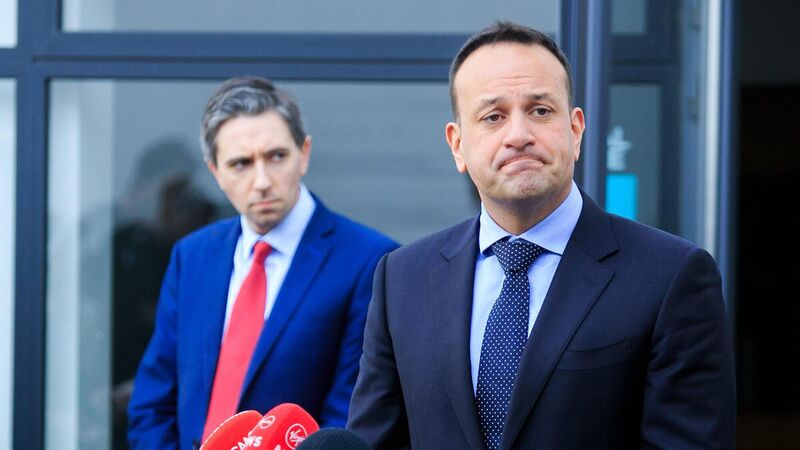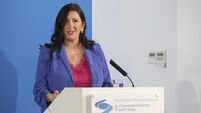'Hard landing for a high flyer': How the world reacted to Taoiseach's resignation

Simon Harris listens as Leo Varadkar speaks to the media. Picture:Gareth Chaney/Collins
Wednesday morning saw political turmoil in Ireland as Taoiseach Leo Varadkar announced his resignation on the steps of Government buildings.
One day on from the announcement, a clear front runner has emerged in the form of Higher Education Minister Simon Harris.














